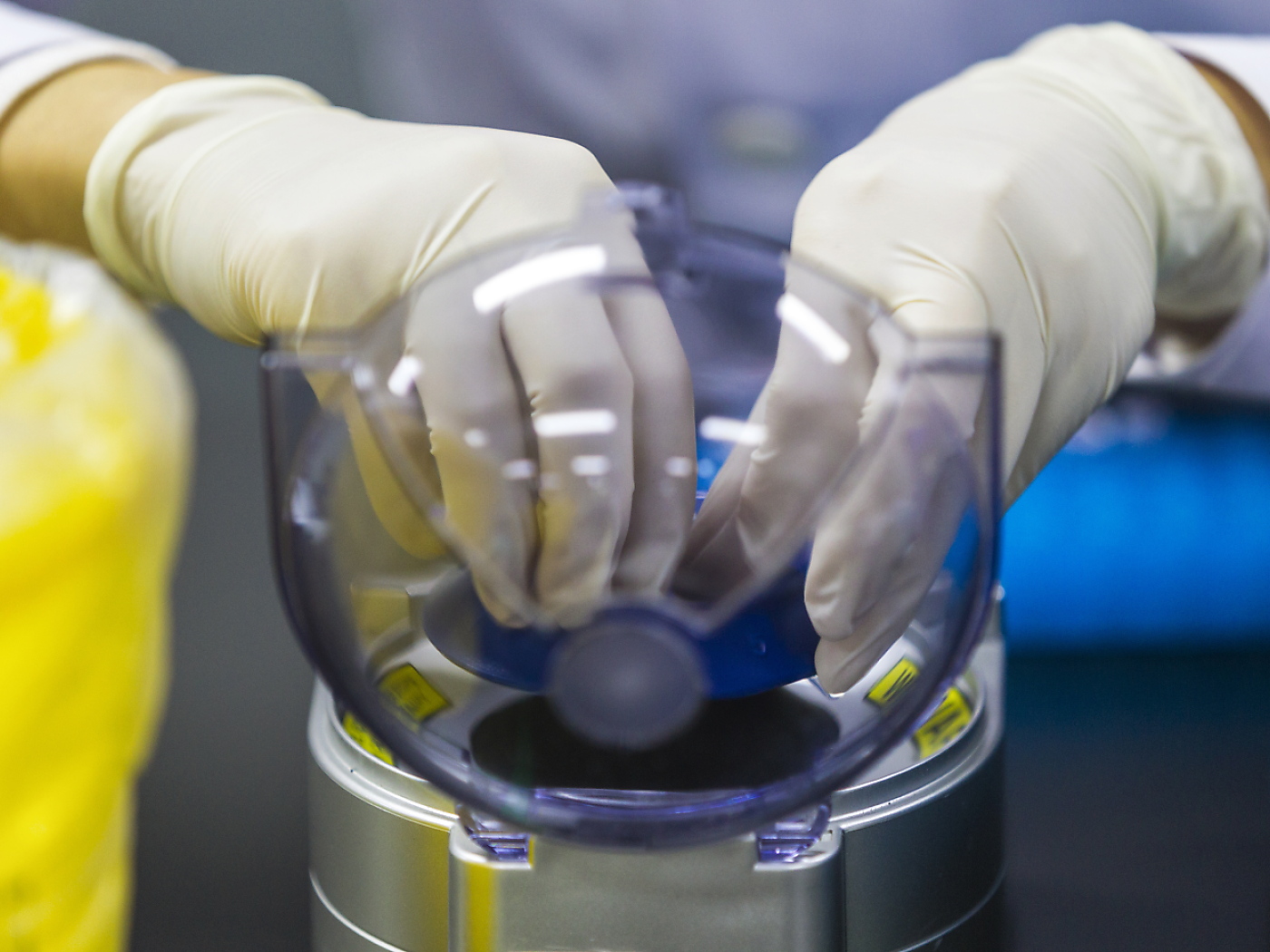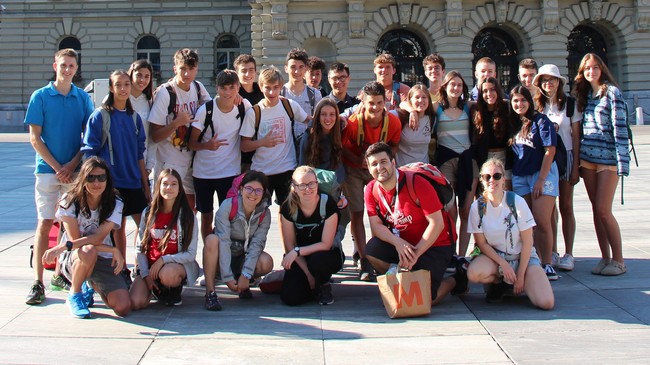
Swiss researchers identify gene variants linked to cancer progression

Researchers at the federal technology institute ETH Zurich have investigated how genetic mutations impact cell function. By employing two CRISPR/Cas techniques, they assessed the importance of these mutations in cancer development and treatment.
Researchers at the Department of Biosystems Science and Engineering at ETH Zurich in Basel modified a gene in two human cell lines in over 50,000 different ways.
+Get the most important news from Switzerland in your inbox
This allowed them to create a vast array of cell variants, which they then tested for functionality. They focused on a gene crucial to the development of various types of cancer, including lung, brain and breast cancer.

More
Swiss cancer research could ‘boost’ immunotherapy
To generate such a vast number of gene variants, the researchers combined two CRISPR/Cas methods, ETH Zurich announced on Tuesday. Base editing allows for easy and reliable modification of individual DNA building blocks, while prime editing enables precise alterations to specific gene segments.
According to ETH Zurich, the researchers identified and described the significance of ten gene variants that previously had an unclear impact on cancer development.
These variants either contribute to cancer progression or make it resistant to certain drugs. The research team also discovered a new mechanism by which a mutation in the investigated gene can cause cancer and identified six new, relevant gene variants involved in cancer.
+CRISPR: Is Switzerland ready to embrace gene editing in agriculture?
Cell pools with different gene variants are crucial for research. Oncologists are increasingly examining the genetic information of patients’ tumour cells. This data offers insights into which drugs might be effective for each individual patient, the report continued.
Translated from German by DeepL/sp
This news story has been written and carefully fact-checked by an external editorial team. At SWI swissinfo.ch we select the most relevant news for an international audience and use automatic translation tools such as DeepL to translate it into English. Providing you with automatically translated news gives us the time to write more in-depth articles.
If you want to know more about how we work, have a look here, if you want to learn more about how we use technology, click here, and if you have feedback on this news story please write to english@swissinfo.ch.

In compliance with the JTI standards
More: SWI swissinfo.ch certified by the Journalism Trust Initiative
















![The four-metre-long painting "Sonntag der Bergbauern" [Sunday of the Mountain Farmers, 1923-24/26] had to be removed by a crane from the German Chancellery in Berlin for the exhibition in Bern.](https://www.swissinfo.ch/content/wp-content/uploads/sites/13/2025/12/01_Pressebild_KirchnerxKirchner.jpg?ver=cb688ed5)














You can find an overview of ongoing debates with our journalists here . Please join us!
If you want to start a conversation about a topic raised in this article or want to report factual errors, email us at english@swissinfo.ch.